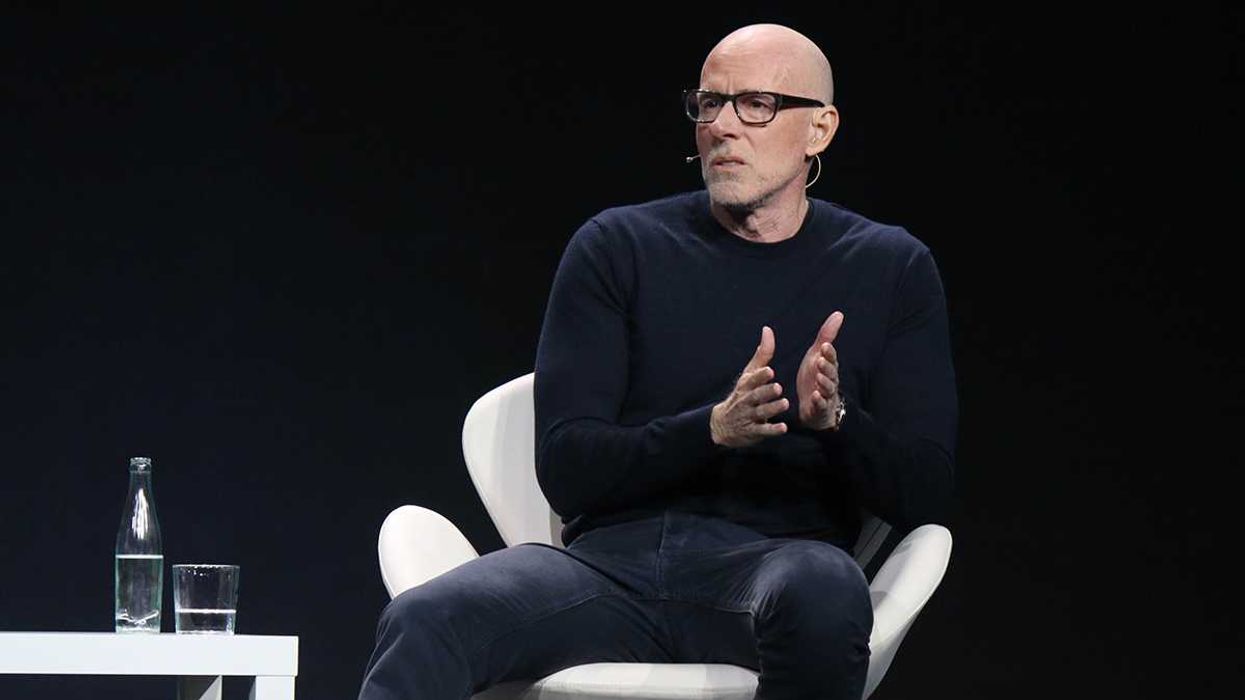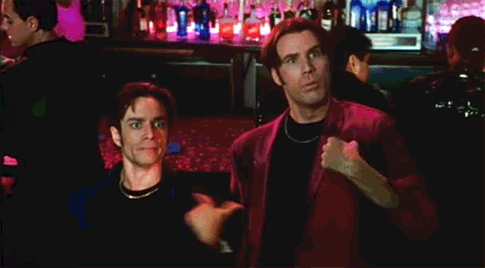Environmentalists and conservationists across the country erupted in anger earlier this month when Utah’s Republican governor, Gary Herbert, signed legislation to rescind the Bears Ears National Monument. Impressively, it was a group of CEOs from some of America's best-known and most-favored outdoor brands who took decisive, meaningful action.
President Obama designated the 2,112 square mile area in southern Utah's San Juan County as protected public land. Herbert is requesting that president Trump remove the protection—something no president has done—and return the land to the state, potentially opening the land up to sale and development. In addition to being home to some of the country’s most breathtaking and beloved pubic lands, Utah has also long served as host home to the Outdoor Retailer trade show, a twice-yearly gathering of retailer, manufacturers, suppliers, and other outdoor industry professionals that brings 40,000 visitors and $45 million to the state annually.
Rose Marcario, CEO of Patagonia, the outdoor gear and clothing company valued at over $600 million, pulled the company out of the Winter Outdoor Retailer show in protest of Utah's legislative disregard for our nation's protected lands. To do anything less, she told GOOD, would be in conflict with the company's commitment to preserving and protecting our environment. Other companies followed suit, and after a tense conference call with Herbert, the Outdoor Retailer trade show announced the decision to permanently move the show out of Utah.
GOOD caught up with Marcario to talk about Bears Ears, the importance of outdoor activity space, and ways to protect the planet under the Trump administration.
Were you surprised by how quickly Governor Herbert moved to rescind the Bears Ears National Monument?
For two decades, (Patagonia) has been working on public lands issues, in terms of public lands protection, and then for the last four years has been working really directly on the Bear’s Ears National Monument. We heard that there was a move to rescind the monument, which we thought was pretty shocking. And so we let our collective voices be heard on that. Our Outdoor Industry Association was very active in communicating with (Utah Governor Herbert’s office) about our concerns about rescinding a national monument and what an unprecedented action that was. Lots of behind-the-scenes conversations ultimately culminated in a phone call with Governor Herbert last week, with the CEO of REI, myself, and the CEO of (The) North Face and the head of the OIA. Unfortunately, Governor Herbert did not give us any indication that he was willing to rescind the resolution to rescind the monument. And we learned last Friday that he signed another resolution to rescind the Grand Staircase-Escalante National Monument, which is a national monument dedicated in 1996. I would characterize this as an all-out assault on public lands. Anyone who has been involved in conservation and outdoor recreation and who cares about public lands staying in public hands should care about this issue quite a lot.
How dangerous is it to have protected lands like this land in the hands of the state?
It’s hard to wrap your mind around, honestly. It’s always about selling the land off to the highest bidder, you know, that kind of mentality. That’s extremely concerning in this case, because they’re talking about extremely reducing the size of these monuments. Patagonia launched a call-to-action, so that people can reach out to the governor’s office and let him know how they feel about this issue. You look at the economic impact of having a national monument, and in most cases––and certainly with Grand Staircase, it’s been around for a long time––it’s done nothing but improve property values, increase job creation, increase the overall wage rate in that county. So I really don’t understand the argument, other than wanting to, like I said, sell the land off to some kind of extractive industry, or sell it off to the highest bidder. I don’t really understand why the legislature is doing this. I don’t know how many Utahns are really behind it, either. I hope there is a lot of public backlash. People should be really concerned about this. It’s not a business imperative for us us to keep these places protected; it’s a moral imperative. You’d think that would resonate with Utahns. I’m pretty disappointed in Utah’s legislators right now. It’s sad.
What else is at risk with this legislation?
This is a very troubling precedent. The idea that national monuments, national parks, could be at risk, and that public lands could come out of public hands, should be of grave concern to anyone who lives near these lands and recreates near these lands. And also to everyone in America who wants to protect wilderness. The outdoor recreation industry is 6 million American jobs, 650 billion in economic contributions to the economy, growing every year, even in the recessionary time that we had in 2008. This is a healthy industry, and to see an assault on these public lands, by state legislators––it’s really troubling.
What is the best way for citizens to help in this fight?
I think every American who cares about protecting wilderness––the last little bits of wilderness that we have, really––should be really concerned about these issues, and should be contacting their local officials and getting involved at the grassroots level to protect these places. … Everyone needs to get involved locally, on the issues of clean air, water, and soil in their neighborhoods, because that’s probably the most direct influence that you have. And showing up to council meetings, and showing up to your elected officials’ town hall meetings, express concern over legislation––these are the most important things that you can do. And also, businesses play a roll. Even if regulations are relaxed, businesses should be taking the high road and doing great things for people and the planet.
What about people for whom environmental protection is not a big concern? How do we motivate those people to become engaged?
All of the press attention that this story has received has been incredibly meaningful, in terms of helping people to understand what the issues are. Being in the conservation movement for decades now, it’s usually not a good thing when federal land ends up with the state. The states tend to sell off the land and keep it from being wild and from being wilderness that can be enjoyed. So I think that’s the overall message. And for the industry to come together … Let’s just say, it’s not very often that I’m on the phone with those CEOs and we’re all focused on one issue and we’re all in agreement.
How do you feel about the appointment of Scott Pruitt to head of the Environmental Protection Agency?
It’s incredibly concerning that Scott Pruitt would be appointed to the EPA, when he spent most of his life suing against regulations. And at a time when what we really need is a forward-thinking EPA that’s focused on clean energy and an innovative energy economy, and then they’re signing into law that you can pollute a stream again. It should be a huge concern to anyone who cares about clean air, water, and soil that we have someone in that role that obviously has sided with big, corporate fossil fuel interests. We’re incredibly concerned about that.
Are we going to face more battles like this going forward?
I don’t think we really know what’s to come. We’re going to take each issue as it comes, and I think Utah is a perfect example of that. When we see an assault on public lands, we’re going to go for it, as an industry. When we see a deregulation that’s going to hurt water, air, and soil, we’re going to go for it, to the extent that we can. It’s going to be tough. We’re dealing with an administration that hasn’t come out and agreed that climate change is a reality and isn’t agreeing with 99 percent of the scientists. I don’t know when America stopped believing in science. Science is real! It’s a little bit disturbing that we have people in the administration that have a hard time saying that. What I’m encouraged by is that there are a lot of CEOs now that are progressive thinkers, that understand that our energy economy needs to change, that are making bold changes, and I think those will be the brands and the companies that will win in the long term, because those are the companies that people will want to buy products from. They’re the companies that are creating the solutions, and not contributing more to the problems and the pollution. For (Patagonia), caring for the planet isn’t in conflict with running a successful business.
















 Self reflection.Photo credit
Self reflection.Photo credit  Older woman touching hands with a younger self.Photo credit
Older woman touching hands with a younger self.Photo credit  Sign reads, "Regrets Behind You."Photo credit
Sign reads, "Regrets Behind You."Photo credit 
 Couple talking in the woods.
Couple talking in the woods. Woman and man have a conversation.
Woman and man have a conversation. A chat on the couch.
A chat on the couch. Two people high-five working out.
Two people high-five working out. Movie scene from Night at the Roxbury.
Movie scene from Night at the Roxbury.  Friends laughing together.
Friends laughing together.
 Maya Angelou reciting her poem "On the Pulse of Morning" at President Bill Clinton's inauguration in 1993.William J. Clinton Presidential Library/
Maya Angelou reciting her poem "On the Pulse of Morning" at President Bill Clinton's inauguration in 1993.William J. Clinton Presidential Library/  First edition front and back covers and spine of "I Know Why the Caged Bird Sings."Raptis Rare Books/
First edition front and back covers and spine of "I Know Why the Caged Bird Sings."Raptis Rare Books/ 

 Tow truck towing a car in its bedCanva
Tow truck towing a car in its bedCanva  Sad woman looks at her phoneCanva
Sad woman looks at her phoneCanva  A group of young people at a house partyCanva
A group of young people at a house partyCanva  Fed-up woman gif
Fed-up woman gif Police show up at a house party
Police show up at a house party 
 A trendy restaurant in the middle of the dayCanva
A trendy restaurant in the middle of the dayCanva A reserved table at a restaurantCanva
A reserved table at a restaurantCanva Gif of Tim Robinson asking "What?' via
Gif of Tim Robinson asking "What?' via 

 An octopus floating in the oceanCanva
An octopus floating in the oceanCanva